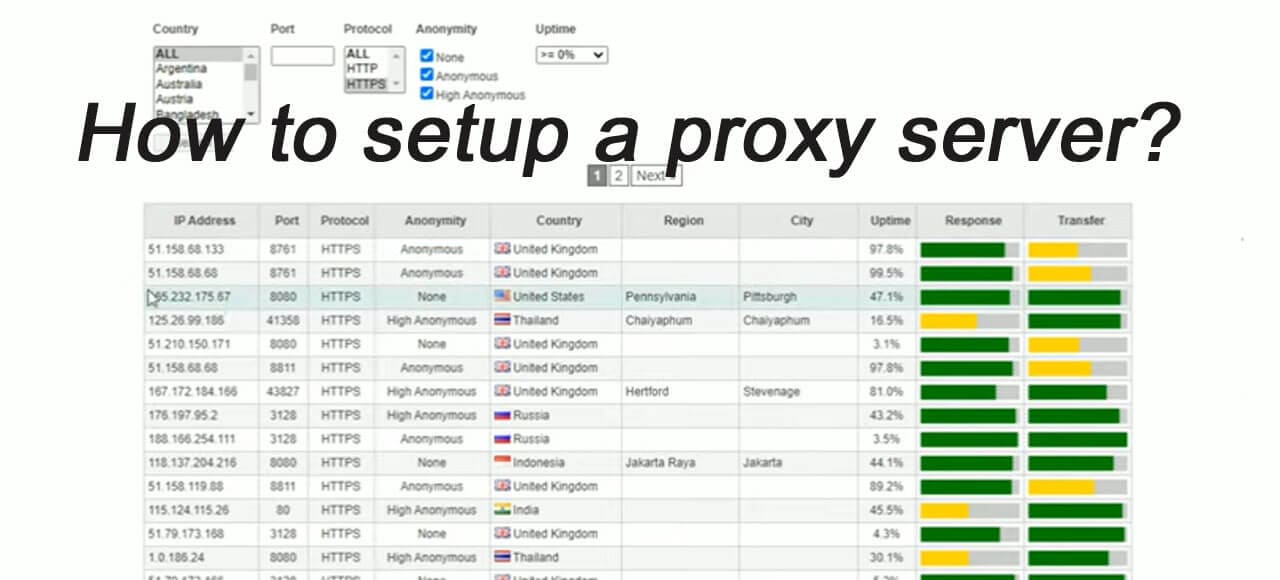In the current digital era, online safety and privacy have never been this crucial. As we journey through the expansive landscape of the web, the threat of exposing sensitive data has increased substantially. One of the most effective tools in safeguarding your digital identity is a proxy system. But what precisely is a proxy server, and how does it function? Understanding the role of proxy servers can empower you to make smart decisions about your digital activities and boost your digital protection.
Proxy function as middlemen between your device and the web, enabling you to access sites and services while masking your internet protocol address. This not just helps maintain your privacy but also offers various benefits, such as improved security, bypassing geographic limitations, and even boosting online efficiency. In this article, we will examine the complex workings of proxy, compare them with other security tools like virtual private networks, and discuss their advantages and potential drawbacks. Whether you're an person seeking online privacy or a company looking to bolster security measures, understanding proxy servers is necessary in maneuvering through the complexities of the online world.
Understanding Proxy Servers
A intermediary server acts as an middleman between your computer and the internet. When you visit a site through a proxy server, your calls are sent to the intermediary first, which then forwards them to the destination. This mechanism helps hide your internet protocol address, making it look as though the intermediary's internet protocol is the one visiting the webpage. As a result, individuals can maintain a degree of anonymity online while navigating various online materials.
Proxy servers come in different categories, each serving unique purposes. For instance, HyperText Transfer Protocol proxies are main used for online data, while Socket Secure proxies can support any kind of traffic, including File Transfer Protocol and peer-to-peer. omeka.net/ do not alter requests and are frequently used in corporate networks to observe employee activity without necessitating user configuration. Understanding these types enables users to choose the appropriate intermediary for their particular demands, whether it's for protection, defense, or efficiency.
The employment of proxies is not just limited to individual individuals. Many companies utilize proxies to improve their digital security measures, boost staff productivity, and obtain data insights. For case, businesses may use proxy servers to access data securely from various sources while also protecting their position. As the digital landscape evolves, understanding how proxies work is crucial for both people and organizations looking to manage online issues effectively.
Benefits and Protection of Proxy Servers
Using a proxy server offers several advantages that improve online confidentiality and safety. By acting as an middleman between your device and the internet, proxies can hide your IP address, making it more difficult for websites to monitor your online activities. This secrecy helps safeguard your personal information from potential threats, especially when browsing on public Wi-Fi networks. With a proxy, sensitive data remains obscured, lowering the threat of identity theft and cyberattacks.
In additionall, to enhancing privacy, proxy servers play a crucial role in protection. They can monitor incoming and outgoing traffic, sifting through malicious content and blocking harmful sites. Many organizations utilize proxy servers as an extra layer of defense against cybersecurity threats. By examining web traffic, businesses can detect unusual patterns that may indicate a breach, allowing them to act swiftly to safeguard sensitive information.
Furthermore, many proxies come equipped with features such as encryption, which strengthens security further. While not all proxies provide the same level of protection, those that do can encrypt data sent between the user and the server, enhancing security during data transfers. This is particularly important when accessing sensitive information or conducting transactions online, as it ensures that your data remains confidential and secure from unauthorized access.
Applying Proxies for Content Streaming and Gaming

Streaming services commonly impose geo-based limitations that can prevent users from viewing certain content libraries. Employing a proxy server can assist in bypassing these geo-restrictions, allowing you to access a broader selection of programs and films. By redirecting your traffic via a server located in a distinct country, you can appear as though you are accessing content from that location, enabling access to content that might otherwise not be unavailable in your area. This capability is particularly beneficial for those wanting to enjoy services like Netflix or Hulu that have different accessibility based on geographic areas.
In addition to improving your viewing experience, proxies can also considerably assist gamers. Many web-based games limit access based on IP location and can prohibit users for various causes. By using a proxy server, players can hide their actual IP location and reduce the risk of being banned while taking part in web-based gaming. Furthermore, proxies can help lessen latency and improve connection reliability by connecting you to the gaming servers more efficiently, providing a smoother gaming experience.
Nevertheless, not all proxies are the same, particularly regarding streaming and gaming. It's important to choose reliable and fast proxy servers to prevent slow connections and possible disruptions. Numerous gamers and streamers prefer dedicated proxies or those specifically designed for intensive activities, guaranteeing peak performance during critical gaming sessions or while watching in bulk preferred shows. This thoughtful selection can help ensure not just availability of content but also the total experience of the service.
